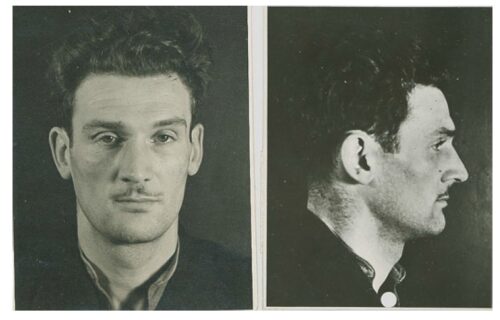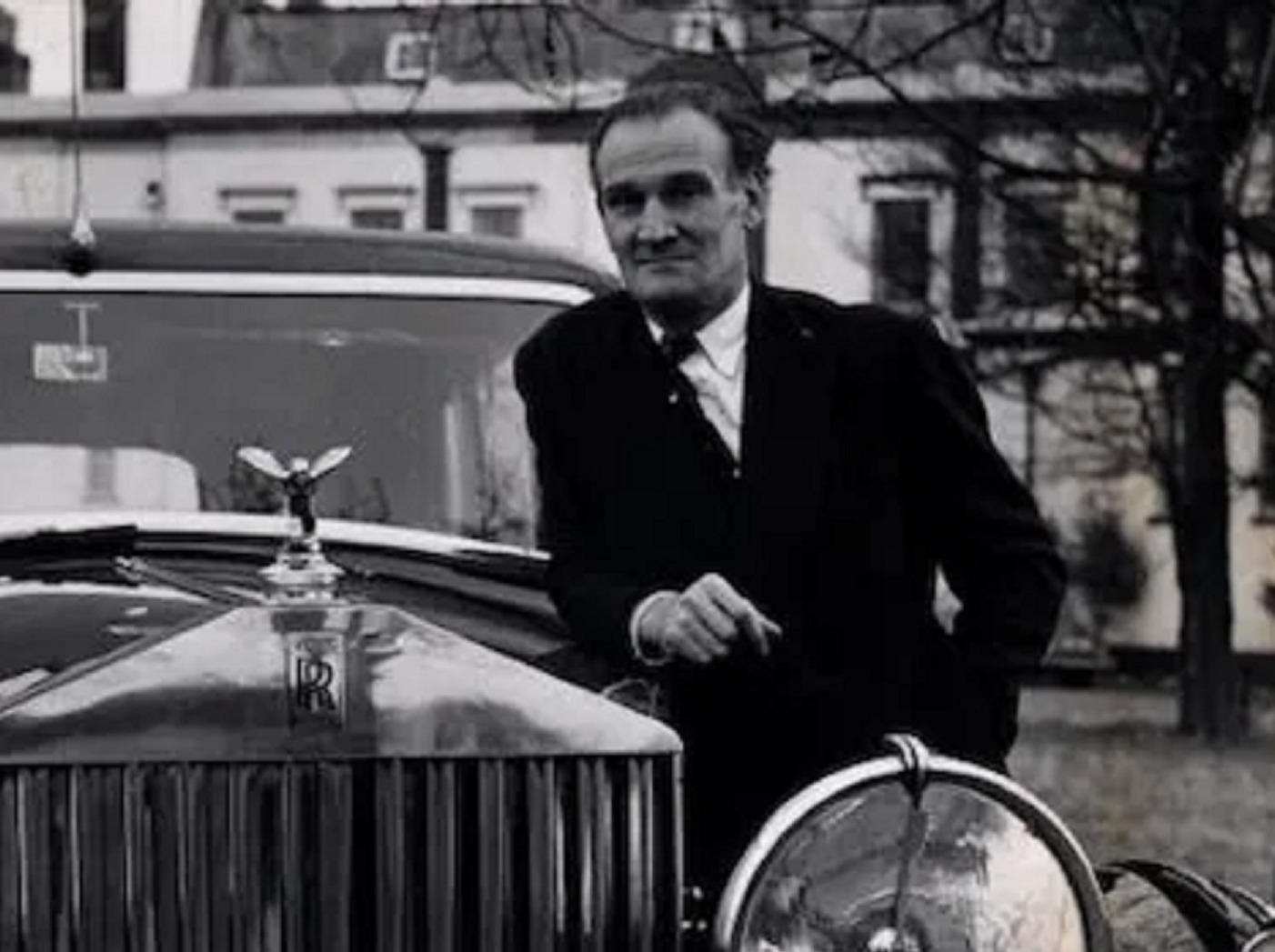Eddie Chapman beside his Rolls Royce. Source: MI5 – UK National Archive declassified documents (over 50 years).
Edward Arnold Chapman, known as Eddie Chapman, was born on November 16, 1914, in Burnopfield, County Durham, England. His father was a former marine engineer who ended up as a publican in Roker. Despite being bright, he regularly played truant from school to go to the cinema and hang around the beach.
At the age of 17, Chapman joined the Second Battalion of the Coldstream Guards, where his duties included guarding the Tower of London. However, after nine months in the army, having been granted six days of leave, he ran away with a girl he met in Soho. After two months, the army caught up with him, and he was arrested and sentenced to 84 days in Aldershot military prison. On release, Chapman received a dishonorable discharge from the army.
Chapman returned to Soho and spent some time working casual jobs, from barman to film extra, but his lifestyle outstripped his earnings. He slipped into fraud and petty theft and, after several run-ins with the law, finally received his first civilian prison sentence, two months in Wormwood Scrubs for forging a check. He became a safecracker with London West End gangs, spending several stretches in jail for these crimes. The gangs utilized gelignite to gain entry to safes, leading Chapman and his associates to be known as the “Jelly Gang”.
Wartime Espionage
When the Channel Islands were invaded by the Germans, Chapman was recruited by the German military intelligence service, the Abwehr, during his imprisonment in Jersey. The Germans trained him in sabotage and espionage, intending to use him to gather intelligence and disrupt British infrastructure.
Chapman was sent on an intelligence mission by parachute into Great Britain with a bundle of clearly labeled German marks. On his return to Britain in 1942, Chapman was apprehended and interrogated by the British Security Service (MI5). Seeing an opportunity, he offered his services to the British and was inducted into the Double-Cross System. This system aimed to control Germany’s entire spy network in Britain using double agents.

His MI5 handlers codenamed him Agent Zigzag in acknowledgement of his erratic personal history. He had a number of criminal aliases known by the British police, amongst them Edward Edwards, Arnold Thompson, and Edward Simpson. His German codename was Fritz or, later, after endearing himself to his German contacts, its diminutive form of Fritzchen.
One of Chapman’s most notable operations as a double agent was Operation Damp Squib. Operation Damp Squib was a mission where Chapman was supposed to sabotage the de Havilland aircraft factory in Britain during World War II. But instead, he convinced the Germans that he had carried out their sabotage mission, while in reality, the factory was untouched. This operation was a significant part of his work as a double agent for Britain.

After returning to Germany, Chapman was assigned a new mission. He was sent to Nazi occupied Norway with the task of instructing at a spy school run by the Germans in Oslo.
After D-Day, the Allied invasion of Normandy in June of 1944, the Abwehr sent him back to England to inspect damage from the V bombs. Despite landing on concrete during his parachuting return and losing some teeth, he continued to work as a double agent.
Chapman led a life of luxury during his time as a double agent. Both the Germans and the British catered to his every whim. The Germans even awarded him the Iron Cross for his “services”. On the British side, they cared for Chapman’s every personal whim while they dispatched two plainclothes policemen to live with him 24 hours a day.
Post-War Activities
After the war, Chapman was involved in a notable venture smuggling gold across the Mediterranean. His audacious spirit and knack for risk-taking, which had served him well during his espionage activities, seemed to persist in his post-war life. He even bought a share in a ship called the Flamingo, which was used for illegal activities,
Chapman violated the Official Secrets Act and published his exploits in several books, including The Eddie Chapman Story (1953), Free Agent: Further Adventures of Eddie Chapman (1955), and The Real Eddie Chapman Story (1966).
Chapman was known for his philandering ways. He was a notorious womanizer, having relationships with multiple women simultaneously. His personal life was as tumultuous as his professorial one. Despite his constant philandering, he eventually settled down and married an old flame, Betty Farmer. They had a daughter together.
Chapman moved to Italy in 1967 and embarked on a venture as an antiquarian. He and his wife subsequently, established a health farm at Shenley Lodge in Shenley, Hertfordshire. They also became the owners of a castle located in Ireland. Chapman maintained a friendship with Baron Stephan von Gröning, his handler from the German intelligence agency, the Abwehr, who was known by the alias Doctor Graumann. Von Gröning, who had encountered difficult times, was present at the wedding of Chapman’s daughter. Chapman passed away due to heart failure on December 11, 1997. He was survived by his wife, Betty, and their daughter.
Legacy
Chapman’s espionage activities during World War II were a blend of audacity, cunning, and sheer luck. His story provides a fascinating insight into the shadowy world of wartime espionage.
His actions during the war remain a subject of debate. Did he help his native Britain out of loyalty to crown and country, or was he so devoted to his German spymasters on a strictly personal basis that he would do anything they asked of him to save his own skin? Regardless of his motivations, his story provides a fascinating glimpse into the shadowy world of wartime espionage.
*The views and opinions expressed on this website are solely those of the original authors and contributors. These views and opinions do not necessarily represent those of Spotter Up Magazine, the administrative staff, and/or any/all contributors to this site.
